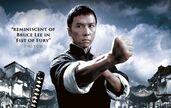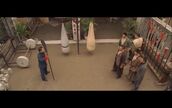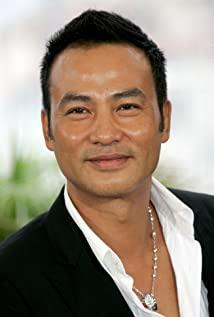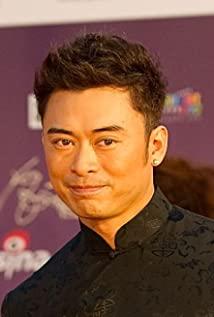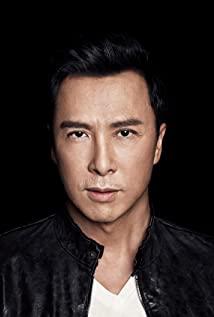Bo Bonni
watched "Ye Wen" and "Mei Lanfang" in one breath yesterday. What's interesting is that the two movies, to some extent, talk about one thing: a master of a generation with stunts. In the era when Japanese invaders were occupied, the desires were completely unavailable in the chaotic world. It is the most painful thing for them not to use their stunts, and it is even more terrifying that stunts are valued by the enemy. One opted for active confrontation, with an iron fist, and one opted for passive resistance, the so-called beard and clear will. The result was still good, after all, he was a grandmaster of the first generation.
But after reading it, I think "Ye Wen" is much better than "Mei Lanfang". Why is this? The narrative strategies of the two films are different. Ye Wen said that a mortal became a god, while Mei Lanfang tried to say that a god actually wanted to be a mortal. The first paragraph of Ye Man's is not so much about Ye Wen's unique knowledge and repeated challenges. It is better to write about his set of principles, that is, his values. In a peaceful and prosperous age, Ye Wen enjoys his identity, his prestige and his family life. Practicing Kungfu is very homely to him, and it goes hand in hand with eating and drinking tea. The person who writes Ye Wen is loose, modest, thoughtful, and restrained. Except for martial arts, he looks like a solid squire. Of course, he also wrote about his martial arts. The most wonderful thing is that all these arrangements are included in the tense plot of struggle and victory without delay.
But the Japanese came, and the happy life of a mortal was destroyed. As strong as Ye Wen, he has also experienced all sorts of sadness and hardship in the commonplace. I admire this passage very much. I write about the relationship between an ordinary couple. Amidst the turmoil, the few quiet strokes are very moving. Ye Wen faced a question for the first time: "What is the use of my kung fu in front of a huge enemy?" In the end, he found a place for his unique knowledge. Ye Wen is like a spring bent to its limit, bursting out with the greatest anger and strength at a critical juncture. From beginning to end, he did not lose the identity and dignity of a generation of masters. The moment he was shot and fell, a god was born.
Watching "Mei Lanfang", I have several disappointments: the first is the instinct she said when I communicated with Ning Dai last night: "Chen Kaige and the Mei family have a deep relationship. I originally thought that there would be some Mei Lanfang revealed by the Mei family. The unknown details or stories, but they don’t.” The first one is that they are all craftsmen. Ye Wen used martial arts to astound the world. The kung fu in the movie is really beautiful; while Mei Lanfang is famous for singing the world. However, the Peking opera in the movie did not make it exciting or full of flavor. There are only scenes, only fragments. Mei Lanfang's "unique skills" are missing in the movie.
The first is that Mei Lanfang's inner identity was originally the most curious part of me. How can a man pretend to be a woman, more beautiful than a woman? It doesn't make sense to explain it with "offstage, I am a man". It doesn't make sense to explain it with "you are a man if you don't dress up". "Farewell My Concubine" makes sense, because Cheng Dieyi fell in love with a man and became a woman. And Mei Lanfang loves women. The woman he loves is a man with arrogance on the stage. These two dislocations are very meaningful and worth exploring. There is no such part.
The first is that although the movie is about "a god wants to be a mortal", what I see is a mortal from beginning to end. You have always been a mortal, not a god, so why do you want to be a mortal? The middle-aged Mei Lanfang, under the heavy pressure of Fu Zhifang, Qi Rubai, and Meng Xiaodong, (by the way, his love with Meng Xiaodong is not like being in love with each other, but like being coerced), trivial, Helpless and exhausted, what I saw was a middle-aged man who was weak, warm, tired, and at a loss. A great master, even in such a contradiction, should have his style and dignity. Mei Lanfang herself, her personality, and her sleek, shrewd and good management skills, all disappeared in the movie. In my opinion, when we write about a celebrity, it is often the case. We want to avoid the darkness of people's hearts, go to camp, stubbornly, dangerous or all immoral, but often also lose its fullness, richness, majesty and all vigor. All this is together, one person is a living person. Want to split, forge, tamper with, want to choose, beautify, whitewash, it is all impossible. It only ends up that the text is wrong, and the language is unclear.
"Mei Lanfang" has several twists: the screenwriter is the first to twist. At first glance, the screenwriter changed an unknown number of drafts according to the direction of the director, and finally made up something. It is still not useful after polishing, and the aura is not smooth. The actor is also quite awkward, Liming has that cowardice and gentleness, but there is really no charm, no look. The director himself is the most screwed, he doesn't know what he wants. What is going to be discussed is: "A mortal has been turned into a god?" Or "A god, to be a mortal?" Or: "A actor wants to raise the status of an actress?" I agree with many people. A segment is best shot, although the scene is almost not on Mei Lanfang: that shot was a former king, the times are gone, the majesty is still there, and I have to give my all my strength to make his debut, but there is no one in the audience. The inner panic, shock, grievance and desolation.
In the end, I also agree with a sentence I recently read: First-class screenwriters will never lose shares in the movies they make; but a first-class director must write the script by himself, which may be rubbish.
View more about Ip Man reviews





